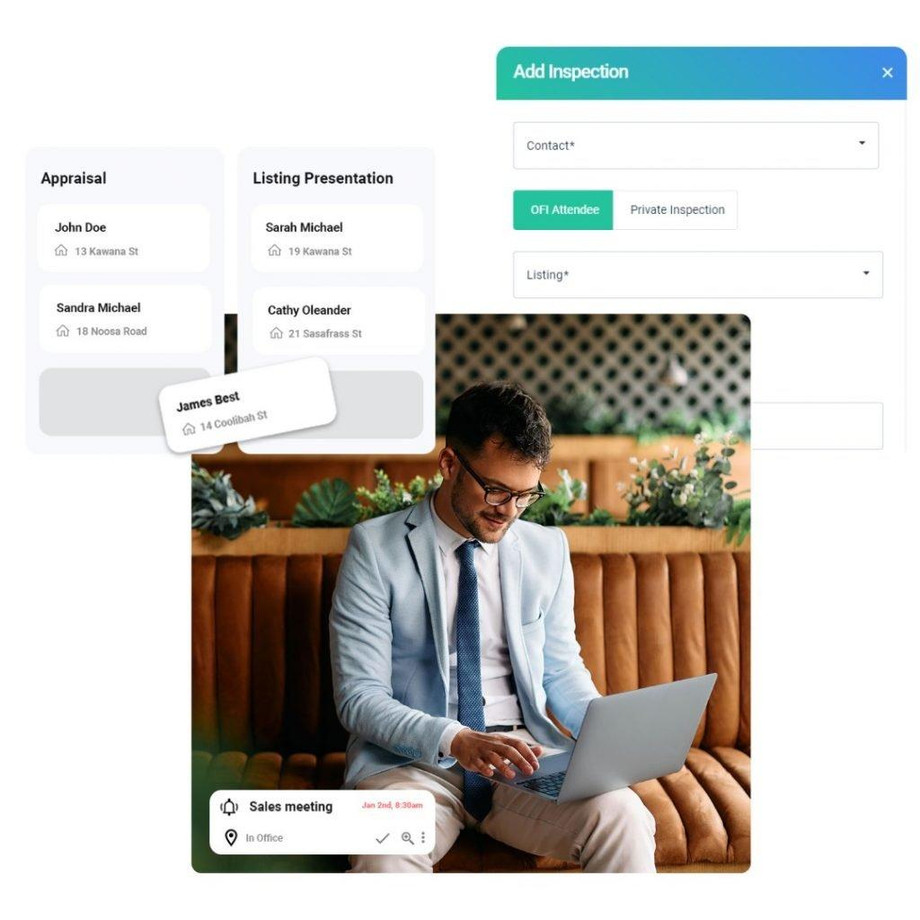In today's digital age, the real estate industry has undergone a significant transformation, with potential buyers and sellers increasingly turning to the internet to research properties and agents. As a result, having a strong online presence is paramount for real estate professionals. One key aspect of this online presence is an effective real estate web design. In this article, we'll explore the importance of real estate web design and offer insights into how to create a compelling and successful real estate website.
The Power of First Impressions
Your real estate website is often the first interaction a potential client has with your business. Just like the curb appeal of a house can make or break a sale, the design and functionality of your website can determine whether a visitor becomes a client. A well-designed website can convey professionalism, trustworthiness, and an understanding of your audience's needs.[
User-Friendly Navigation
A successful real estate website should provide visitors with an intuitive and user-friendly experience. Here are some essential elements to consider:
Clear Navigation Menus: Ensure that your website has easily accessible menus that guide visitors to important sections like property listings, agent profiles, and contact information.
Mobile Responsiveness: In an era where many users browse on mobile devices, your website must adapt seamlessly to different screen sizes.
Property Search Filters: Implement robust property search filters that allow visitors to refine their search based on location, price range, property type, and other criteria.
Interactive Maps: Incorporate interactive maps that display property locations and nearby amenities, offering a comprehensive view for potential buyers.
Showcasing Listings
Your website's ability to showcase property listings effectively is crucial. High-quality images and detailed property descriptions can make a significant difference. Consider the following:
Professional Photography: Invest in professional photography for property listings. High-resolution images that capture the property's best features are more likely to attract potential buyers.
Virtual Tours: Consider incorporating virtual tours or video walkthroughs to provide a more immersive experience for online visitors.
Detailed Descriptions: Write compelling and informative property descriptions that highlight key features and amenities. Include important details like square footage, the number of bedrooms and bathrooms, and unique selling points.
Agent Profiles
People often want to connect with a real estate agent they trust. Showcase your team with compelling agent profiles that include:
Professional Photos: High-quality, professional headshots lend an air of credibility and approachability.
Biographies: Agent bios should not only list qualifications but also include personal anecdotes, interests, and a friendly tone that invites trust.
Contact Information: Make it easy for visitors to contact agents directly through the website.
Lead Generation and Contact Forms
Your website should be a lead generation machine. Include strategically placed contact forms that prompt visitors to inquire about properties or request more information. Offering downloadable resources like market reports or buyer's guides in exchange for contact information can be an effective way to build your email list.
Integration with Real Estate Tools
To streamline your operations and provide a seamless experience for clients, consider integrating your website with real estate tools and software. Some valuable integrations might include:
Multiple Listing Service (MLS): Connect your website to the MLS database to automatically update property listings.
Customer Relationship Management (CRM): Implement a CRM system to manage client relationships and communication efficiently.
Online Scheduling: Allow clients to schedule appointments or property viewings directly through your website.
SEO Optimization
To ensure your website ranks well in search engine results and attracts organic traffic, invest in search engine optimization (SEO). This includes optimizing content with relevant keywords, creating informative blog posts, and ensuring your site's technical elements are SEO-friendly.
Security and Privacy
Given the sensitive nature of real estate transactions, security and privacy are paramount. Use SSL encryption to secure your website and implement privacy policies to reassure visitors that their information is protected.
Regular Updates and Maintenance
A successful real estate website is not a one-time project but an ongoing commitment. Regularly update property listings, blog content, and ensure all information is accurate and up-to-date. Regular maintenance helps keep your website running smoothly and enhances the user experience.
for more info:-





Comments